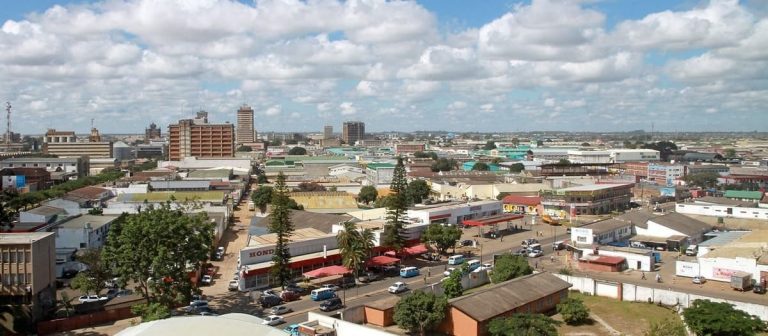By Chris Zumani Zimba*
Corruption is frequently cited as one of the top concerns holding back economic growth in Africa, but it is often less clear how we can measure it. For example, when we are seeing more arrests and more prosecutions, is that a sign that corruption is deepening or that enforcement is attempting to crack down?
That’s the central question that has come up in response to the most recent 2018 Corruption Perceptions Index released by Transparency International (TI), whose accuracy and fairness is often the subject of contentious debate. Although there are some clear and deserving targets of Transparency International’s lowest rankings such as Russia, Venezuela, and North Korea, there are many others that are continually subjected to unfair and biased rankings, when in fact positive progress is taking place right before our eyes.
Among the nations selectively targeted for criticism is Zambia, which Transparency recently knocked down by two points in the latest index (though it is far from clear whether this is reflective of shifts in other countries more than any reality taking place on the ground). In light of recent developments in the country, a closer examination of TI’s ranking shows that the opposite trend is taking place.
Though we don’t find many people talking about it, the truth is that for the first time in a long time, we have a government in Lusaka that is finally recording some progress in its anti-corruption battle.
In early February, Zambia’s Anti-Corruption Commission (ACC) made one of its most high-profile arrests to date, with charges filed against the powerful sitting Minister of Infrastructure, Ronald Chitotela, sending a clear message to Zambian officials that no one is untouchable.
According to Chief Government Spokesperson, Dora Siliya, the arrest of Chitotela should “inspire confidence” in the country’s law enforcement agencies and investigative wings, while many others on social media celebrated the news as a sign that things are heading in the right direction. And with his trial now underway, the Zambian public will see just how seriously the government treats breaches of the social contract.
Indeed, a pattern of stronger enforcement can be observed. In the last few months alone, the Director of Finance at the National Housing Authority, Charles Chewe, was arrested for violating public procurement rules, and an Assistant Immigration Officer was tried and found guilty of fraud and theft, and a former MP Fabian Mumba was tried and found guilty of similar corrupt practices. Most recently a former mayor from Choma, Professor Mwaanga, was arrested on charges of failing to disclose conflict of interest in a land-distribution scheme that, in previous years, would’ve been swept under the rug.
Even arguably victimless acts of misconduct are met with swift consequences. For instance, after failing to attend several Central Committee Meetings, Mr. Christopher Yaluma, both an MP and the Minister of Commerce,was expelled from his influential party agenda-setting role.
When allegations of corruption were brought against former Zambia Airforce Commander, Erick Chimese, in August 2018, President Lungu having been adequately briefed, acted accordingly and made the necessary changes to remove him to ensure the integrity of the security wing.
Most importantly, Zambia’s fight against graft appears to overcome political favouritism, with cases against corrupt elements from all parties. For example Sean Tembo, the formal spokesperson of the opposition alliance, was recently found to have lied about his qualifications when bidding for a public tender, which he won, in neighboring Botswana. In other words, Mr. Tembo defrauded a foreign government while levying similar accusations against his political opponents. In another case, opposition MP Gary Nkombo recently presented the Zambian parliament with a fraudulent document that he claimed to contain proof of the incumbent party’s corrupt misdeeds. Fortunately, the two are due to face their respective penalties.
The administration is also moving toward updating the institutional capacity and structures of government to be more resilient to corruption. One of these tools, the financial management information system (IFMIS), is particularly promising. According to the Accountant General Dick Sichembe, the system will soon deliver more criminal convictions, based on the highest evidentiary standards and transparency, for those facing allegations of financial mismanagement.
All these arrests, investigations, firings, expulsions and oversight reforms are part of a larger systematic effort that should be applauded. But instead, the criticism has only hardened.
Perhaps it should not be surprising. In part, the more that you do to fight corruption, the more you bring cases to light and hold people accountable, the greater the public awareness of the problem. In addition, these series of cases represent an opportunity for the opposition, which at times has sought to cast a negative light on their opponents. A prime example of this was the circulation of numerous misleading stories on the social cash transfer issue and suspension of aid by the UK and Sweden. Although no actual fraud was proven and 100% of the funds were recovered from the accounting error, the country’s reputation nevertheless took a hit.
This is not to say everything is perfect in Zambia or that we are now completely free from corruption. Of course, these issues are still endemic to our system and need to be addressed. The point is that the appropriate authorities have recognized the need for a change, and the necessary actions are being taken.
Though physically and emotionally exhausting for the Zambian public at large, this response is long overdue. And the journey may be far from over still, but congratulations are due.
* Chris Zumani Zimba is a policy analyst, author, and lecturer on political science at the University of Zambia (UNZA)

